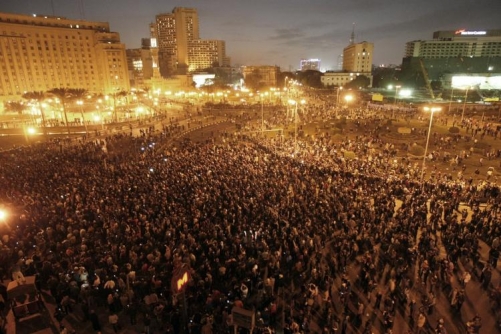
Over 1.11 billion people around the world use Facebook. What
started out as a simple way to connect with friends has now evolved into a
powerful multicultural political machine, and a hyperlinked agent of change
throughout the world.
Youth of the Middle East are increasingly using popular
social networking sites like Facebook to transfer emotive pictures of human
struggle. In Egypt, young people created
a fascinating page on Facebook to raise awareness of the excesses of the
military regime in the country. Those
instances known as the Arab Uprisings of 2011 were reported on FYOUTH as the
cries of young teenagers simply wanted to enjoy basic human rights and freedoms
in peace.
Social media nowadays used to solicit support for causes and
conflicts all around the globe, but its use a few years ago in the freedom
movement in Egypt was unprecedented for the Arab region. The Egyptian government of Hosni Mubarak shut
down the Internet, and used military force against student demonstrators. Eventually the young challengers won the
battle on the streets and in cyberspace.
The government of Egypt was overthrown and democratic elections were
held in June 2012.
Mohamed Morsi was elected President of Egypt and took office
on June 30, 2012. Egypt’s democratically elected government known as the Muslim
Brotherhood appeared to be on the verge of introducing a new culture of youthful
ideas. Unfortunately, the tough-fisted
leaders of the military establishment did not appreciate the revolutionary
spirit and they took steps to regain power. The CIA has been reported to have recruited
young activists to demonstrate their discontent on the streets and through
social media. The number of followers on
Facebook’s many movement pages quickly accumulated and the attacks on Morsi's
record as well as the agenda came from all directions. Demonstrations and political upheaval,
largely encouraged and organized through social networking, resulted in the
military ousting of Morsi from power over the summer of 2013.
The Arab world is entering a new phase of the Facebook Revolution. Social media greatly assisted in the creation
of a democratic state in Egypt. Yet the
horrors being inflicted upon young activists in Egypt and Syria have been world-broadcasted.
As a result of this, social media movement has stalled. We are collectively bewildered and agog at
the atrocities that the elderly will inflict to kill the hope of Egypt's young
for a more prosperous and democratic country.
The Facebook Revolution seems to mock the relative powerlessness of
social media against the military’s tanks, guns and chemical weapons.
Youth activists must not despair. Approximately 60% of the people now living in
the Middle East are under 30 years of age.
As these young people increasingly turn to the Internet to spread words
of protest for change, social networking will become an invaluable tool in the
battle for justice and freedom. The youth
in Egypt demonstrated the power of social media when they refused to
"click the like button" on Mubarak in 2010, and again when they
demonstrated disdain for the 62-year old Morsi in 2013. Even though Western leaders, particularly
those of the US and Israel, were not enamored with the results of Egypt’s
elections, the Facebook revolution showed social media was a powerful tool for
social and democratic change.
Democracy is not always the answer. The 2006 Palestinian elections, which were
the brainchild of the West, resulted in Hamas, the Sunni Islamist organization,
winning a majority in Parliament. Hamas had
been considered a terrorist organization at times in the US, Canada and the
European Union. In an inevitable
reversal of the use of social networking, the leaders of Hamas use both Twitter
and Facebook to communicate their anti-Israel and anti-Arab Spring propaganda.
They reached out to 55% of Gaza youth that make the daily use of the internet
demonstrating clearly that social media can be used to both foment and
discourage societal change.
As the Middle East continues its quest for more freedom and
opportunity, it's up to the youth to spread the word. Facebook and Twitter have
played a key role, but ultimately, it's their collective bravery and effort
that's truly commendable. Many young people have gone far beyond posts on
Facebook pages. When they could no longer rely on the internet for support,
countless numbers took to the streets to protest their views, some
unfortunately becoming victims of police brutality. A scenario to this would be
when a 12-year-old boy was arrested from school after chanting anti-military
coup chants or when a group of women including a schoolgirl, was attacked and
killed during an anti-military march protest.
Despite all this, the youth of Egypt carry a heavy burden,
but also tell an inspiring story, and truly are a reflection of modern youth
activism at its best.

0 Reply to "The Changing Facebook of Egypt"